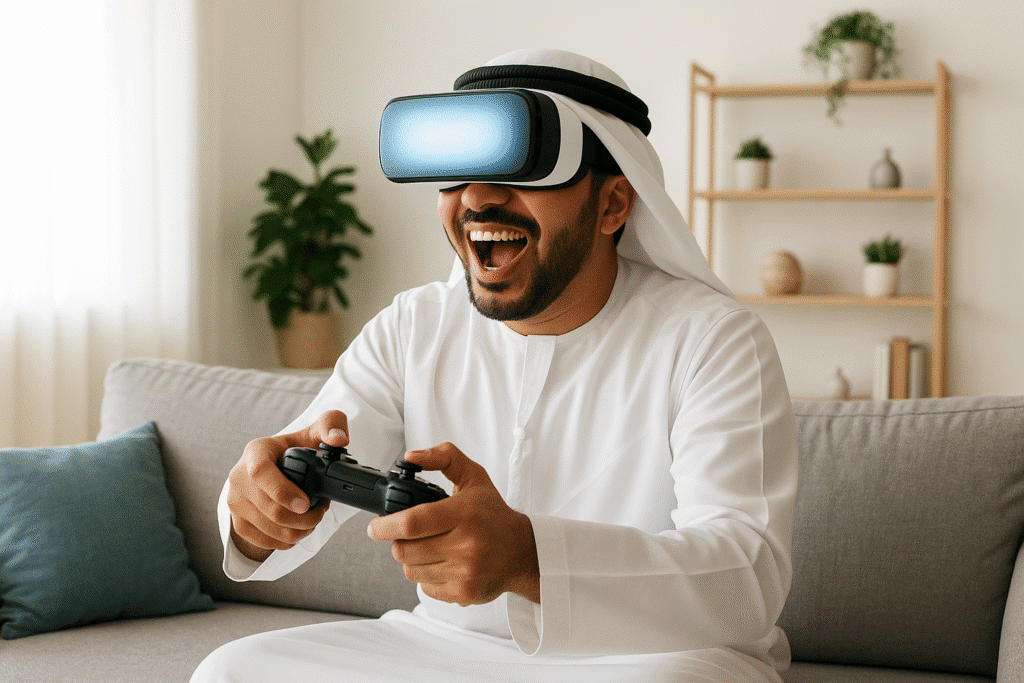Virtual Reality (VR) gaming is the next big leap in the gaming industry. The promise of immersive experiences and the ability to transport players to entirely new worlds captivated the imaginations of developers and gamers alike. However, despite significant advancements and considerable investment, VR gaming has faced numerous challenges that have prevented it from becoming as mainstream as traditional gaming platforms. This article explores what happened to VR gaming, its evolution, and the factors influencing its trajectory.
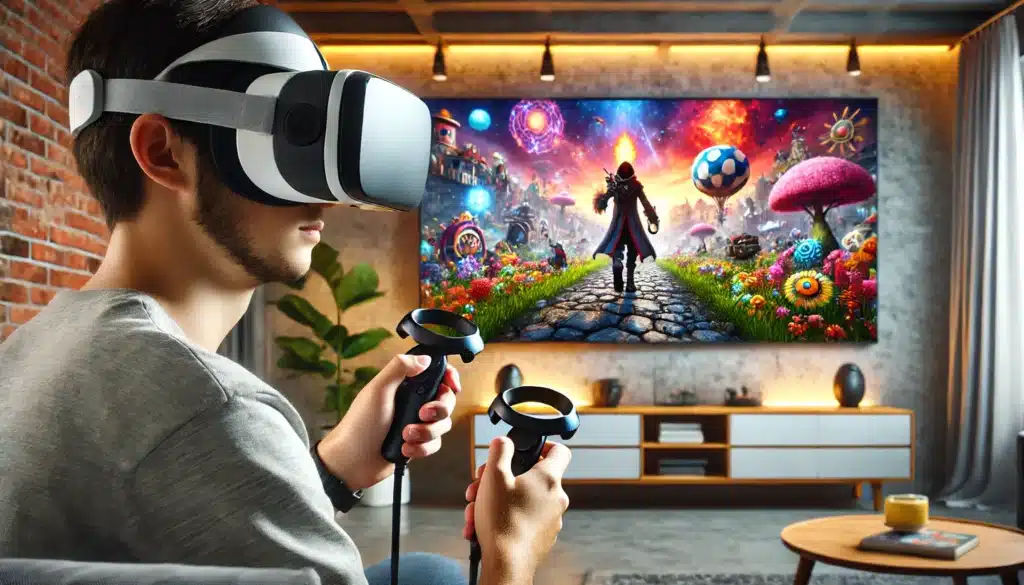
The Rise of VR Gaming
Early Innovations and Enthusiasm The modern era of VR gaming can be traced back to the early 2010s when devices like the Oculus Rift started gaining attention. The Oculus Rift, funded through a highly successful Kickstarter campaign in 2012, showcased the potential for immersive gaming experiences. This excitement led to significant investments and the development of other VR headsets, including the HTC Vive, PlayStation VR, and later, the Oculus Quest series.
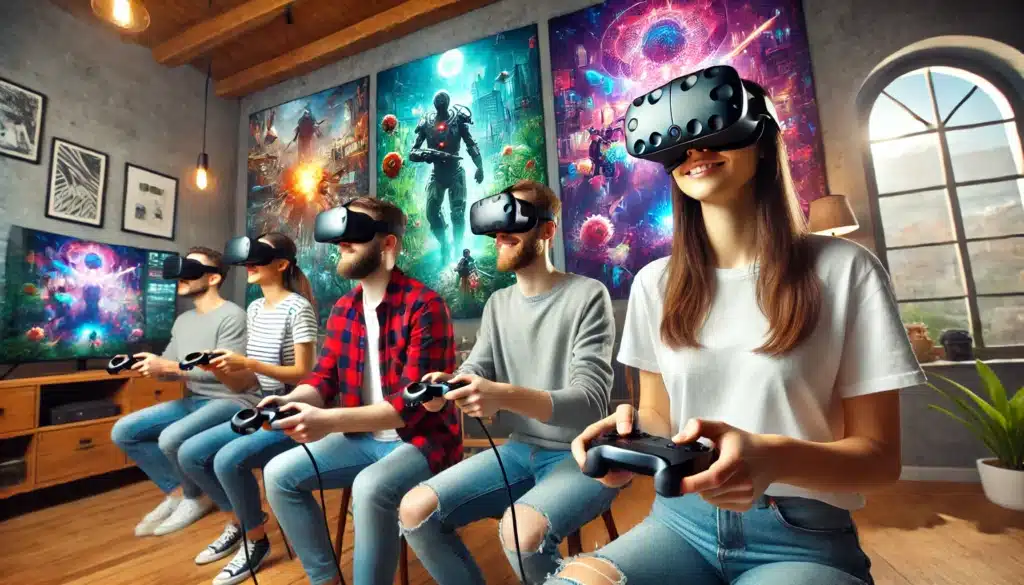
Technological Advances Advancements in VR technology have been impressive. Improvements in motion tracking, display resolutions, and processing power have significantly enhanced the VR experience. Companies have also developed innovative controllers and haptic feedback systems to make interactions in virtual environments more intuitive and immersive.
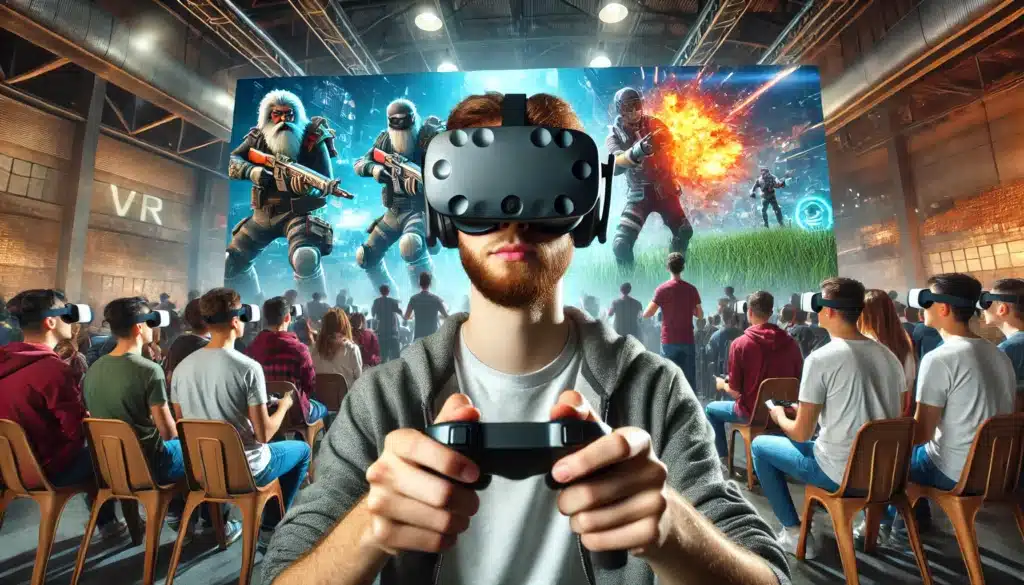
Challenges Facing VR Gaming
High Costs and Accessibility One of the primary barriers to the widespread adoption of VR gaming is the cost. High-quality VR headsets and the necessary hardware to run them can be expensive. For example, a high-end VR setup, including a powerful PC and a headset like the Valve Index, can cost over $1,000. While prices have decreased over time, the initial investment remains substantial compared to traditional gaming consoles.
Physical and Comfort Issues VR gaming requires players to wear a headset, which can be uncomfortable during extended play sessions. Issues such as motion sickness, eye strain, and the physical space required for some VR experiences have deterred many potential users. These physical challenges need to change to make VR gaming more accessible to a broader audience.
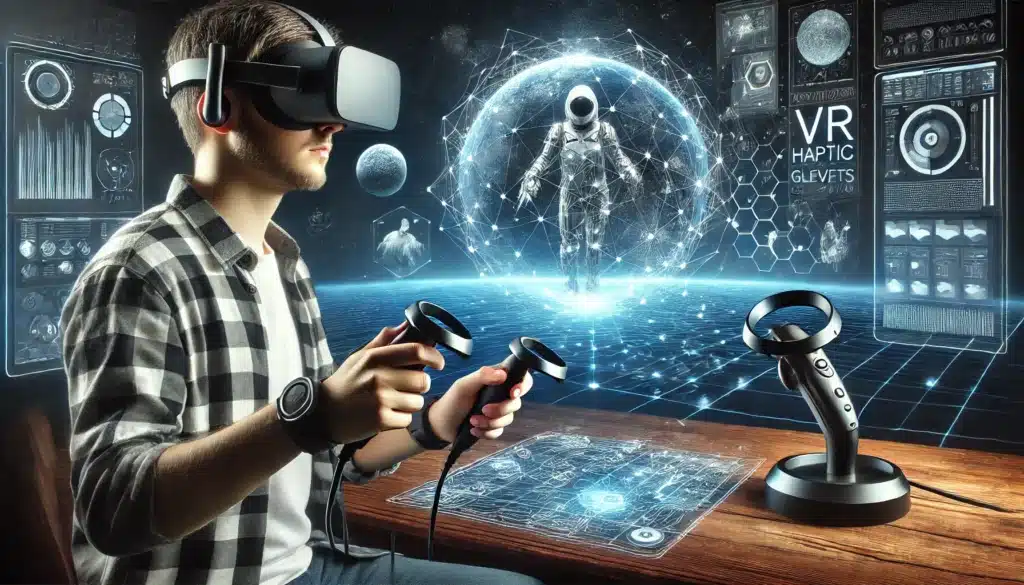
Content Limitations The availability of compelling VR content is another significant challenge. While there are standout titles like “Half-Life: Alyx,” “Beat Saber,” and “Superhot VR,” the library of high-quality, must-play VR games is relatively small compared to traditional gaming platforms. Developers face technical challenges and high development costs, which can limit the variety and depth of VR game offerings.
Market Fragmentation The VR market is fragmented, with various platforms and devices competing for market share. Oculus, HTC, Sony, and other manufacturers have their ecosystems, which can create compatibility issues and limit the reach of certain games. This fragmentation can confuse consumers and make it difficult for developers to decide which platform to support.
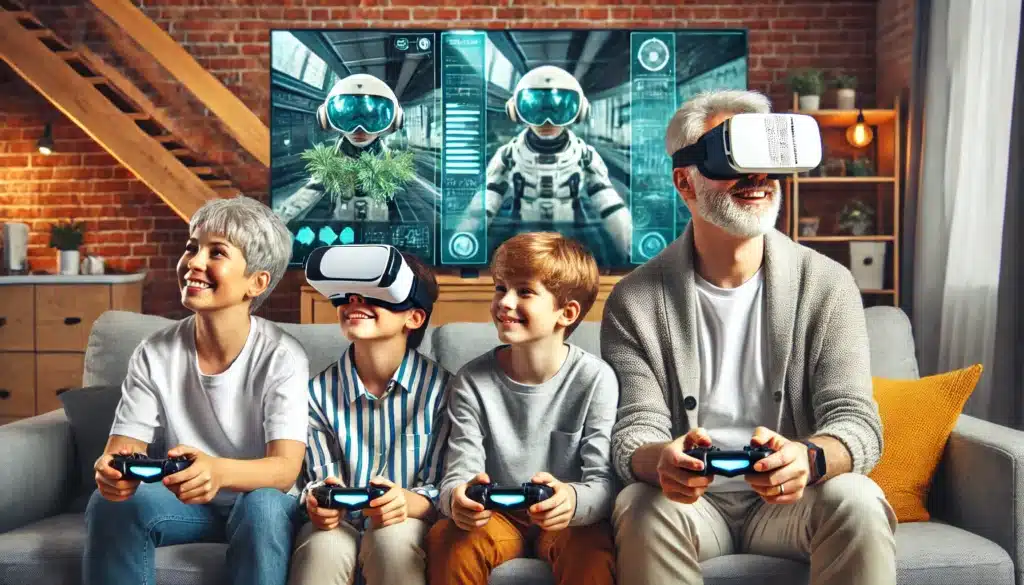
Current State and Future Prospects
Standalone VR Headsets Recent advancements in standalone VR headsets like the Oculus Quest 2 have made VR gaming more accessible. These devices do not require a powerful PC or external sensors, reducing the cost and complexity of setting up a VR system. The Quest 2, in particular, has been praised for its balance of performance, price, and ease of use.
Enterprise and Non-Gaming Applications While gaming remains a significant focus, VR has found success in other sectors, including education, healthcare, and enterprise training. These applications have driven technological improvements and increased public awareness of VR’s potential.
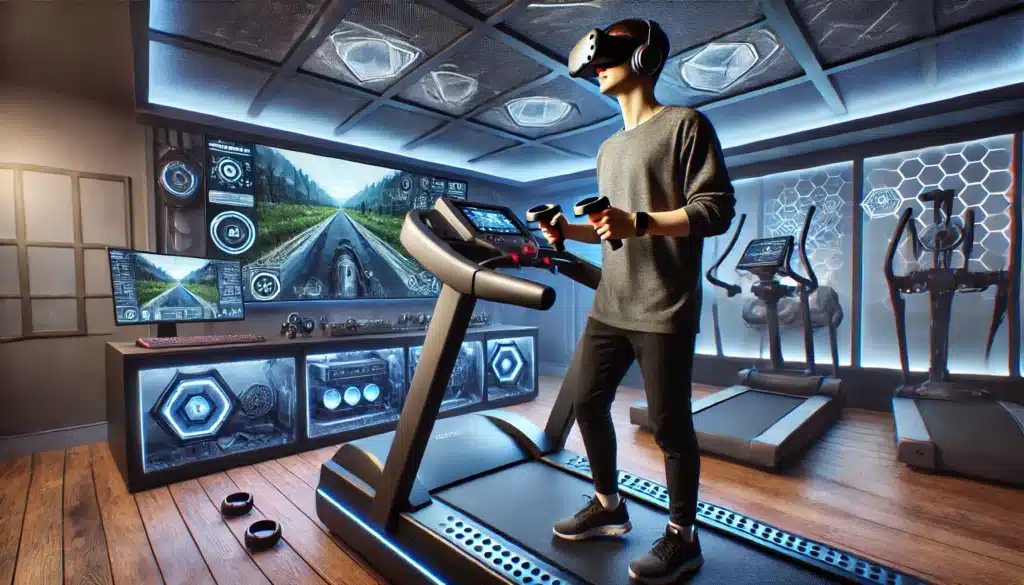
Metaverse and Social VR The concept of the metaverse, a shared virtual space where users can interact, work, and play, has gained traction. Companies like Facebook (now Meta) are investing heavily in developing the metaverse, which could drive further adoption of VR technology. Social VR platforms like VRChat and Rec Room also show the potential for VR as a social and collaborative tool.
Technological Innovations Continued advancements in VR technology, such as improved display resolutions, wireless capabilities, and more intuitive control systems, will enhance the user experience. Innovations in haptic feedback and motion tracking will likely make VR interactions even more realistic and immersive.
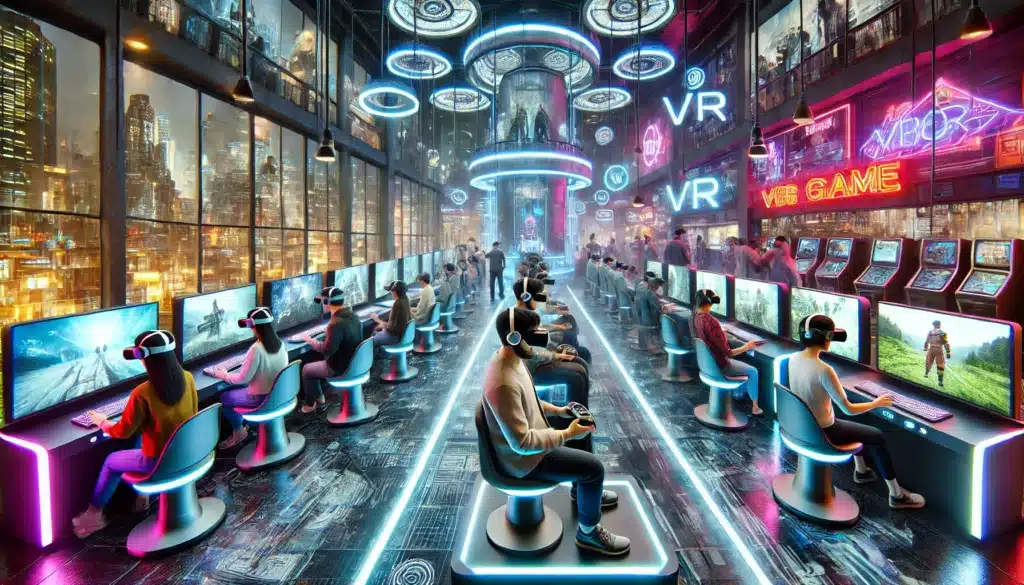
The Road Ahead
VR gaming has made significant strides since its early days, but it still faces challenges that limit its widespread adoption. High costs, physical comfort issues, limited content, and market fragmentation are hurdles that need to be overcome. However, advancements in standalone headsets, the rise of the metaverse, and non-gaming applications offer promising avenues for growth. The future of VR gaming looks bright, but it will require continued innovation and a focus on addressing these challenges to fully realize its potential.
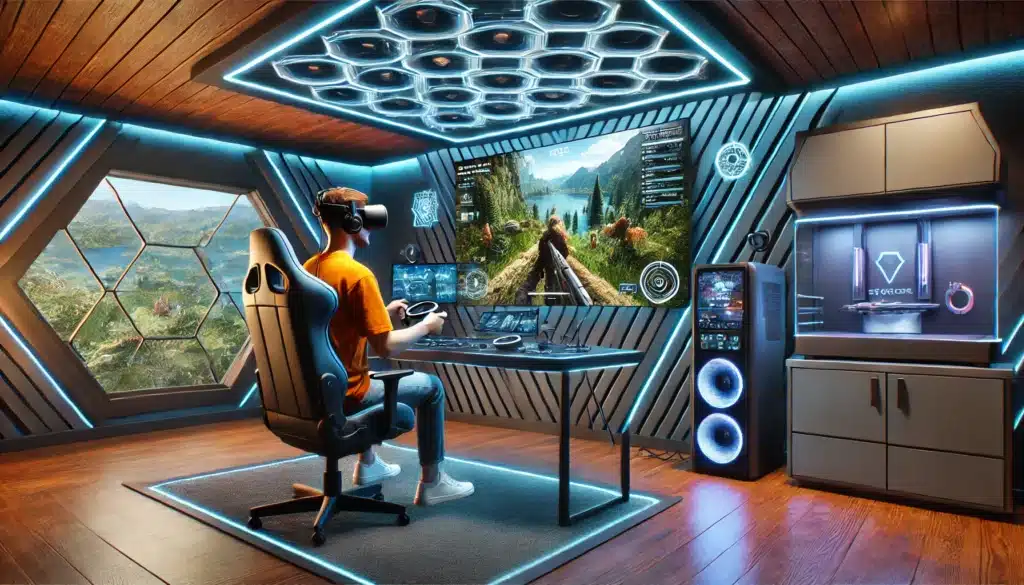
In short, VR gaming isn’t going anywhere, and what we have today, is the worst it’s ever going to be.



